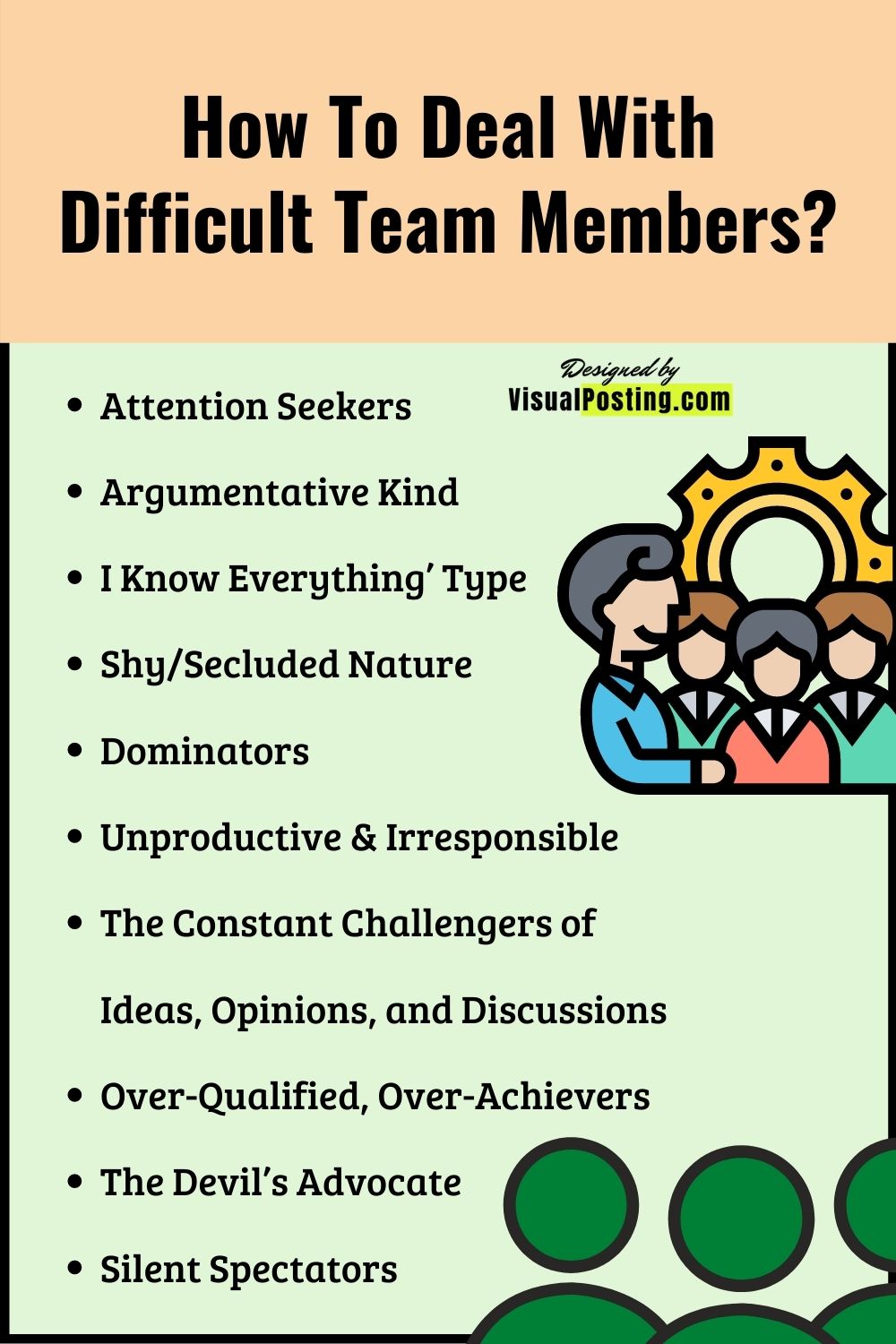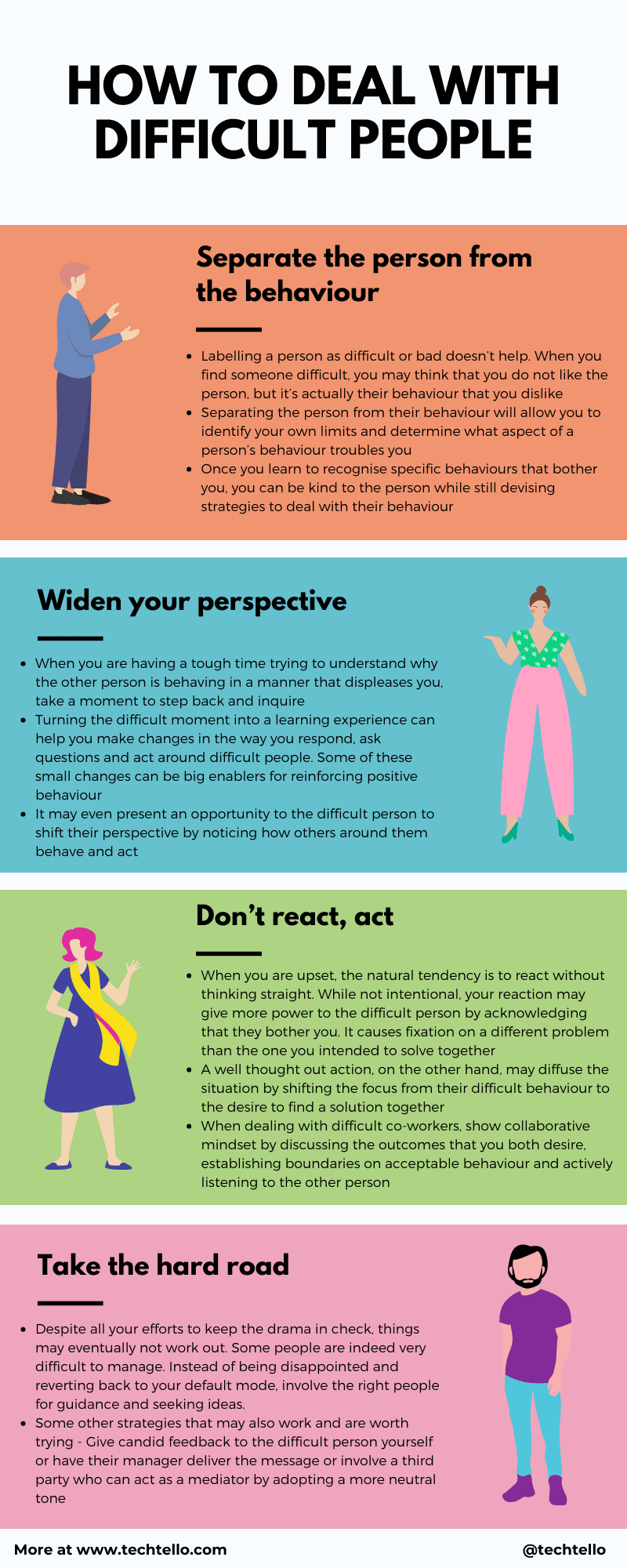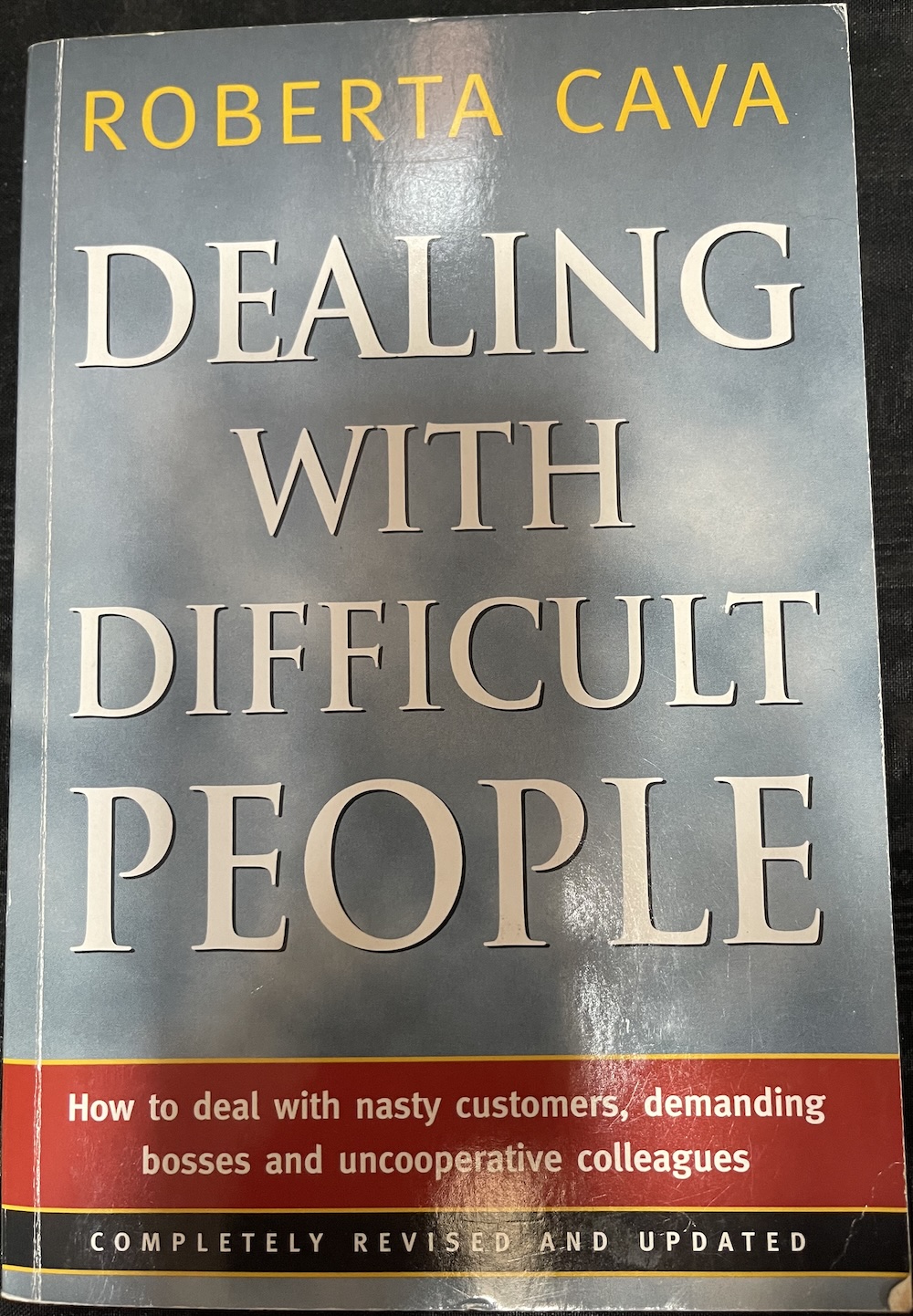Wonderful Info About How To Deal With Uncooperative People

As soon they can, effective leaders acknowledge how they are feeling then they make a plan of how to move on from their internal discomfort to empathy to action.
How to deal with uncooperative people. Passives also are known as push. People will be more willing to cooperate if they. How do you address uncooperative team members?
Powered by ai and the linkedin community 1 identify the root cause 2 communicate clearly and respectfully 3. Today, there are smarter moves to make when dealing with a tyrant. Consider the traits you like or admire in this person and the.
Find a way (if you have to spend time around each other) that you can do so with respect. 1 identify the root cause 2 set clear expectations and consequences 3 provide support and coaching 4 use constructive feedback and conflict resolution 5. When i spoke up about it, i was advised to simply put up with it as i might be branded as uncooperative otherwise.
Patients can be uncooperative, hostile, demanding, disruptive, and unpleasant (although it is important to remember that patients may think that doctors also. Difficult people detract from the purpose and goals of a group, team or. Think about and try to identify the uncomfortable feeling or feelings you associate with this person.
Feeling pressured to be a team player is just one. The concept of apatheia, a state of being where you care appropriately about what is going on around you, can help you in difficult. Watch her tedx talk on conflict and follow her on linkedin.
In subtle manner, let them know that they need to participate more in the group to be fair to all the group members. Keep extra space between you and the other. He struggled to cope with medical staff taking observations, and his notes recorded him as uncooperative.
Even if that person doesn’t change their ways, they can become a little. Find your mindset sweet spot. Start by approaching your colleague with friendly questions, rather.
2 strategy 1: When dealing with difficult people, our immediate urge is to jump to our own defense. Open communication 2.1 the importance of open communication 2.2 key elements of open communication 2.3 practical steps to.
There are a few things you can do to try to encourage the person to think more about the team. Wait until the person takes a breath and then speak. Don't try to talk over the person.
Don't argue or try to convince the other person of anything.



:max_bytes(150000):strip_icc():format(webp)/how-to-deal-with-difficult-people-at-work-1919377-v5-5b74a14c46e0fb0050480872.png?ssl=1)














